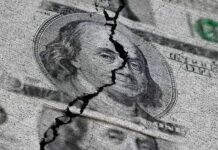In December 2019, a new class of coronavirus known as SARS-CoV-2 (later renamed COVID-19) Pandemic came like a thunderbolt to the whole world, as nobody saw it coming, not with spying satellites in the sky, not by any security and intelligence agency around the world, and not with the most sophisticated horizon-scanning machine or analytical methodologies. It caught the field of risk analysis and management by utmost surprise.
From the moment it was reported breaking out from the downtown Wuhan City, Hubei Province, in China, on December 31, 2019, it quickly spread around the world through human-to-human contact. It was both end-of-the-year and New Year gift from China to the rest of the world. Countries were engulfed and overwhelmed by the insidiousness of the virus within a short period of time. It shook and exposed the Achilles heel of the public health sector worldwide, graphically showing its hitherto hidden vulnerabilities. Thousands consequently lost their lives worldwide. Economies nosedived and crashed into the gulfs of crisis and recession. Significantly, COVID-19 pandemic rattled the defence, security and intelligence establishments worldwide. Virtually everything was turned upside down, literally speaking.
This brief analysis looks at the human security implications of COVID-19 Pandemic as an extension of the hitherto existing national security threat spectrum. But it is not just the pandemic but also the government response worldwide that cause a crisis in the human security sector. According to McKinsey and Company: “COVID-19 is, first and foremost, a global humanitarian challenge. Thousands of health professionals are heroically battling the virus, putting their own lives at risk. Governments and industry are working together to understand and address the challenge, support victims and their families and communities, and search for treatments and a vaccine.
This is arguable as other observers and analysts may wish to disagree and contend, laying more emphasis on the primacy of the global and national security dimensions of the coronavirus. Joseph Micallef (2020) says that COVID-19 underscores the national security implications of such a pandemic. “COVID-19 is simply one battle in a longer and larger war that humankind has waged with coronaviruses for generations. This pandemic, however, has underscored the national security implications of such outbreaks.” It is therefore not surprising that according to Talha Ibrahim (2020) “Covid-19 has ushered in the latest wave of transformation in the policy and scholarly agendas of national security.
Indeed, a lot of writers, too numerous to mention here, have shown convincingly the fundamental threat posed by COVID-19 Pandemic to both global and national security interests while not necessarily overlooking the human security dimension. Governments, while fighting to bring the virus under control in their individual countries, have also looked over their shoulders to the source of the virus: China, and in the process raising very crucial and relevant questions as regards the nature of the virus, whether it was man-made or a natural occurrence, both which has its own specific implications for global, regional, national and human security and concomitantly the multilateral and bilateral relationships with China, present and future.
Governments and individuals have called upon China to come out with the truth about the coronavirus; that it has the burden of history on its shoulder to discharge; and to explain and exonerate itself from or admit guilt for what actually happened in Wuhan city. This line of argument and pressure on China is that it is not enough to gloss this over; telling others to mind their businesses or first solve the pandemic; that it is important in the spirit of public accountability and transparency – something which China itself preaches on international institutional platforms – to come out clear and clean since, at any rate, nobody is going to “kill” China for telling the truth.
Modern biotechnology has opened a veritable Pandora’s box of biological weapons, including man-made biological weapons that combined different characteristics of several pathogens to create super pathogens. The organisms are called chimaeras, a reference to Greek mythological creatures that incorporated features of several animals. The emergence of the SARS-CoV-2 virus underscores the challenge that even naturally occurring pathogens pose to the national security of the U.S.
Some believe that, while the virus was being studied at the Wuhan Institute of Virology, the virus escaped by infecting someone at the institute. Through that person, the original patient 0, it was transmitted to the general population of Wuhan, and from there elsewhere throughout China and the world. It does not appear that the research on the SARS-CoV-2 virus was intended for weaponization. The research was part of a broader effort, in part funded by the U.S. and Canadian governments, to study coronavirus pathogens, which involved several research institutes, including the Wuhan Institute of Virology.
The enormous human and economic damage that has been caused by the SARS-CoV-2 virus, however, has underscored just how potent a biological weapon this coronavirus and other pathogens like it can be. The COVID-19 epidemic showcased a deep vulnerability in the U.S., indeed the whole world, to such viral pandemics.
But as Audrey Kurth Cronin and Patrick M. Conin (2020) noted: Every crisis yields an opportunity. The tragic toll of this pandemic in the United States will underscore a very personal threat to Americans, losing friends, neighbours, and family members to this deadly virus. Widespread pain will unlock both political capital and federal resources to start treating public health as a national security priority. The most poignant and powerful phrase in U.S. rhetoric has always been “never again.” American history demonstrates that, although the country is often slow to respond, U.S. strategy-making succeeds best when the American people are at the heart of it.
This paper, however, proceeds from a national security standpoint to look at the human security implications of the coronavirus with special reference faced by the public health sector in coping with the treatment of the virus in view of the absence of a known cure.
Follow the Neptune Prime channel on WhatsApp:
Do you have breaking news, interview request, opinion, suggestion, or want your event covered? Email us at neptuneprime2233@gmail.com





